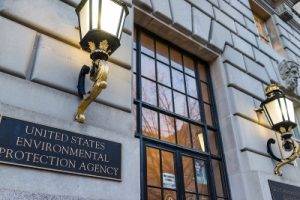
The Environmental Protection Agency's (EPA) mission is to protect human health and the environment. That is accomplished through a number of key efforts, including developing and enforcing regulations, providing grants, studying environmental issues, sponsoring partnerships, and educating the public about the environment through programs and publications.
While the mission of the EPA is decidedly focused on the health of the earth, the challenges it addresses are increasingly coming from cyberspace, with cyber threats becoming a key focus of organizations utilizing natural resources.
Protecting the Water Supply
A recent memo issued by the EPA and White House National Security Advisors warned state governors that hackers linked to foreign entities pose a threat to water systems. The memo highlighted that drinking water and wastewater systems are an attractive target for cyberattacks because of how critical they are to communities and that bad actors know there are limited resources and technical capacity to instill rigorous cybersecurity practices. The Cybersecurity and Infrastructure Security Agency (CISA) has been directed to improve its coordination with the water sector by providing the tools and intelligence at its disposal.
Improving Air Quality
To improve air quality nationwide, the EPA must first improve the systems that monitor and measure air quality. A recent report from the Government Accountability Office (GAO) found that the usability of two key IT systems, AQS and AirNow, is hindering efforts to monitor and improve air quality. These systems were developed in the 1990s, and updating the systems to work effectively with modern technology is difficult and expensive. GAO directed the EPA to fully analyze the upgrade options for these systems.
Finding the Money
Providing funding through grants is only part of the effort to help communities improve environmental practices. Many disadvantaged and underserved communities struggle to get funding for programs because they do not have the resources to apply for grants. A new program is looking to change that. The EPA's WaterTA program offers engineering assistance to communities to identify water challenges, develop plans, build capacity, and develop their application materials to receive funding available through the infrastructure bill.
Building the Team
The EPA is actively growing its workforce. After years of staffing reductions, the EPA is looking to hire around 1,000 people in the next year. This growth is being funded by the bipartisan infrastructure law and the Inflation Reduction Act. To build the pipeline of candidates, the agency is holding a series of outreach events, themed "BeEPA," across the country to raise awareness of career opportunities with the agency in roles as diverse as scientists, engineers, grant managers, attorneys, and IT professionals.
For more on the efforts of the EPA and the trends impacting its work, check out these resources:
- The 5 Disruptors of OT Security (April 25, 2024; webcast) - Operational technology (OT) environments and industrial control systems are becoming increasingly interconnected and complex, expanding the attack surface and necessitating innovative defense mechanisms. To ensure operational resilience and mitigate risk effectively, organizations must continually adapt their OT cybersecurity strategies.
- Sustainable Facilities Forum (May 9, 2024; Sacramento, CA) - Learn about strategies, best practices, and technologies behind successful public-sector facility projects.
- Industrial Control Systems Summit Solutions Track 2024 (June 17, 2024; webcast) - Adversaries targeting critical infrastructure systems (power grids, water management systems, heavy manufacturing, oil and gas refineries and pipelines, etc.) have demonstrated detailed technical knowledge of control-system components, industrial protocols, and engineering operations. This event will illustrate the challenges, risks, and impacts of incidents in control systems and provide practical, achievable, and actionable steps to take to meet these challenges head-on.
- Federal News Network's Cyber Leaders Exchange 2024 (October 22, 2024; webcast) - The National Cyber Strategy has challenged agencies as they continue to keep up with every-changing cyberthreats. The White House's vision laid out how agencies should play a leading role on all things cyber through oversight, acquisition, and technology deployment. Here cyber leaders and experts dive deep into efforts across government to bring the White House vision to life and strengthen cyber capabilities.
- Top Cyber Actions for Securing Water Systems (infographic) - Water and wastewater systems sector entities run operational technology and information technology systems that are often vulnerable to cyberattacks. This fact sheet highlights the top cyber actions water systems can take today to reduce cyber risk and improve resilience against cyberattacks and provides free services, resources, and tools to support these actions, which can be taken concurrently.
- U.S. Environmental Protection Agency (EPA) Environmental Justice Activities and Programs (white paper) - For decades, policymakers and stakeholders have raised concerns regarding the disproportionate effects of environmental pollution among different communities and populations in the United States. Several executive orders have provided direction to federal agencies to incorporate environmental justice considerations into their policies and programs within the bounds of existing statutes.
- How Federal Funding for Basic Research Spurs Clean Energy Discoveries the World Needs: Eight Case Studies (white paper) - Funding for early-stage climate-tech research at universities is largely overlooked by policymakers, as advocates call for policies to force markets to adopt the clean energy solutions that are available now. This needs to change.
To stay on top of the technology trends and policies impacting the EPA search through the resources on GovEvents and GovWhitePapers.



